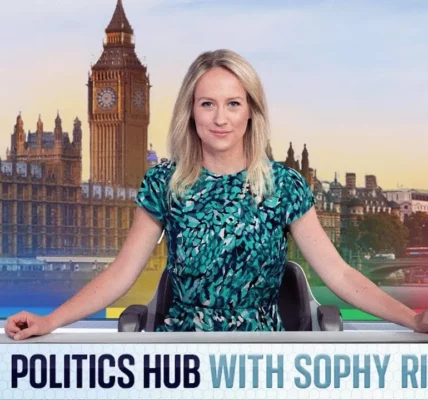Labor’s Ambitious Manifesto Launch: A Detailed Analysis

In the latest episode of Sky News Daily, we dive deep into the Labor Party’s recent manifesto launch led by Keir Starmer. With a focus on key policies and the political atmosphere, this article explores the implications of their proposed changes as the election draws near.
Introduction
The Labor Party recently unveiled its manifesto in Manchester, setting the stage for what many consider a pivotal moment in UK politics. With the upcoming election seen as a crucial opportunity for change, Keir Starmer and his shadow cabinet emphasized their commitment to addressing key national issues. However, the manifesto has sparked debates about its content and the party’s overall ambition, leaving many to wonder whether it truly represents a departure from traditional policies or merely a rebranding effort.
Manifesto Highlights
The Labor manifesto outlines five primary missions that they claim will drive their government if elected: economy, education, health, energy, and crime. Let’s delve into these areas further.
Economic Policies
Starmer’s approach to economic policy emphasizes no tax rises for working people, a stance aimed at countering the long-standing narrative that Labor is a “tax and spend” party.
- No increases to income tax or National Insurance for working individuals.
- A focus on “economic stability” as a cornerstone of their agenda.
- Promises of economic growth to fund public services without significant cuts.
Education and Health Initiatives
Education and health are positioned as top priorities, with plans to enhance funding and accessibility in these sectors, although specific details on funding mechanisms remain vague.
Energy and Climate Change
Labor has committed to substantial investments in green energy initiatives, with plans to establish a government-owned energy company. This reflects their intent to align with contemporary climate change goals.
Crime and Public Safety
The manifesto also addresses crime, promising to enhance community safety and support local policing. However, critics argue that these promises lack the necessary financial backing to be effective.
The Political Climate
As the election approaches, the political climate is charged with anticipation and scrutiny. Starmer’s leadership style and the party’s perceived confidence play a significant role in shaping public perception.
Public Reception and Criticism
The launch faced criticism for lacking innovative policies, with some commentators describing the manifesto as “quietly ambitious.” This raises questions about whether Labor is truly ready to lead or merely maintaining the status quo.
Polling and Complacency Concerns
Despite holding a significant lead in the polls, concerns about potential complacency within the party have emerged. Observers note a shift towards a more relaxed strategy in light of their favorable standing.
Economic Implications
One of the most critical aspects of the manifesto is its economic implications. Analysts are closely examining the feasibility of the proposed economic growth without raising taxes.
Growth Assumptions
Labor’s manifesto hinges on the assumption of robust economic growth. However, independent forecasters have expressed skepticism about the realism of these projections.
Costing and Budgeting
The manifesto outlines a relatively modest financial framework compared to other parties, leading to debates about its effectiveness in addressing the UK’s economic challenges.
Conclusion
The Labor Party’s manifesto launch represents a significant moment in the UK political landscape, offering a blend of traditional policies with a new branding effort. As the election nears, the effectiveness of this strategy will be tested. Voters will need to consider whether the promises made align with their expectations for change. To stay informed about the latest developments in UK politics, be sure to follow our coverage and analysis.
For further insights, check out our related articles on Labor Party Analysis and UK Economic Outlook.
“`




